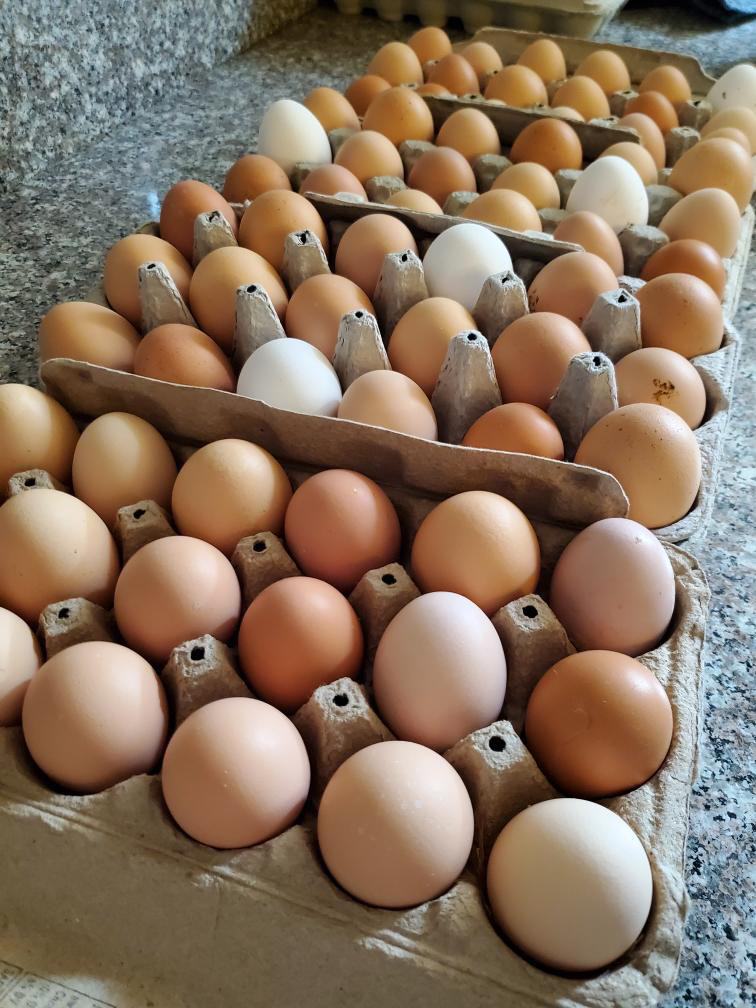Sarah and Corey Bolander started a small chicken farm on their property in Marana in 2021 with the intention of eating healthier.
Little did they know their farm would make such a strong impact on their local community a few years later.
The recent outbreak of bird flu, first identified in late December, has sharply cut into the national egg supply, which means eggs are harder to find at many grocery stores and big box retailers statewide. That’s opened the door for locally owned chicken farms, which are starting to see an increase in egg sales as a result of the shortage caused by the H5 bird flu.
The US Department of Agriculture reports that 153.8 million birds have been affected since the first influx of the bird flu virus in 2022, although some sources put that number as high as 280 million.
The transmission of the H5 bird flu has the potential to affect humans, cattle, cats and poultry. There have been 67 human cases reported in the United States.
The CDC states that the H5 bird flu can be transmitted through direct contact with infected wild birds, bodily fluids and airborne particles.
Russel Tronstad, an agriculture-resource economics specialist at the University of Arizona, said the reason why the virus has affected such a large number of hosts is because of its easy transmission between flocks. This also can explain why egg production has gone down, resulting in a shortage and higher prices at the store.
“Once it’s detected in one flock, they pretty much depopulate the whole flock to try to keep it from spreading,” Tronstad said “That’s where it has the biggest impact because you’re taking a whole bunch of egg layers out of the system. There’s a lot more small operations now because it’s so contagious.”
Local chicken farmers are taking precautions. At Mr. Perfect Farms in Marana, the Bolanders are hoping by feeding their chickens quality nutrition they can keep the avian influenza at bay.
“We make sure that we feed them really well. One thing that helps chickens with their immune system is feeding them red pepper and then we also feed them mealworms,” Sarah Bolander said. “Those things combined boost their immunity and just make them stronger.”
Bolander said her farm has seen a significant increase in sales and some customers have even inquired about owning their own chickens.
“There’s never eggs on the shelves for us,” Bolander said.
Larger chicken farms in Southern Arizona are also seeing an increase in egg sales.
Terrie Depoy, who owns Laine Organic Farms in Hereford, said she hopes that keeping watch on what their chickens are consuming and where they roam will ensure the birds are not exposed to the avian influenza.
Depoy’s 75 chickens produce about 30 dozen eggs a week that she sells for $4 a dozen. Commercially produced eggs at local grocery stores were selling for $6 to $8 a dozen last week, which is almost double the average price of eggs reported by the US Bureau of Labor Statistics.
But at some grocery stores like the Target in midtown Tucson, it was hit-or-miss if there were even any eggs to buy.

“The suppliers right now are just so far behind that we can place full orders but they can only fill our orders in the order they receive them,” said Ryan Dibley, who works in the store’s egg and meat department. “So if we’re the ninth store that wants 50 cases of eggs, they have to give those eight other clients the eggs first and if they run out of eggs […] they run out of eggs.”
“Two days ago, we probably ordered like 45 cases and this is what we’ve got,” Dibbley said, pointing to a small box with 10 cartons of eggs.

Arizona Sonoran News is a news service of the University of Arizona School of Journalism.















